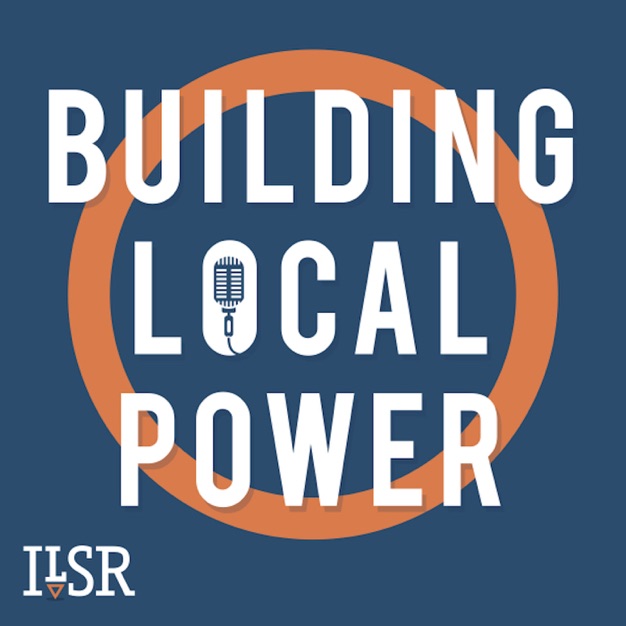
Building Local Power
At the Institute for Local Self-Reliance, we work to break the chains of monopoly power in all sectors of our economy. From challenging incumbent cable monopolies in order to promote better Internet connectivity to pointing out how Amazon pushes local retailers out of the market, our researchers develop positive policy prescriptions to improve local economies. This podcast series provides a first glimpse at some of our newest original research and a unique economic perspective on today's most pressing topics.
- 20 minutes 26 seconds“The Bad Target”: The Rise of Consumer RedliningAI technology and large language models are growing in popularity. Also growing is the technology's detrimental effect on the environment. Each query into ChatGPT, to use one example, requires billions of calculations. Multiply that by millions of users, and suddenly, tech companies need to greatly expand their computing power in the form of new, energy-draining data centers. Each of those centers requires staggering amounts of fresh water to keep its servers cool. By some estimates, just 10 ChatGPT queries are equivalent to evaporating a 16oz bottle of water. For context, the popularity of these queries has resulted in one of the major technology companies now having the same annual water consumption as PepsiCo.
Joining us on Building Local Power to discuss what this all means is UC Riverside professor Dr. Shaolei Ren. Continuing our series exploring how monopolies exploit structural racism to gain monopoly power, Ren not only outlines the environmental effects of AI but also explains how data center location decisions by Big Tech companies exacerbate environmental inequity. Almost all of the counties most affected by AI's climate harms are low-income communities and Black communities.
What can policymakers and the public do? Ren has ideas for that, too, as he pushes for what he calls "health-informed computing."
For the full transcript and related resources, visit the episode page:
https://ilsr.org/articles/blp-environmental-inequity-of-ai9 January 2025, 10:43 am - 38 minutes 29 secondsA Rebalancing Act: How We Restore Local Power in 2025ILSR co-executive directors Stacy Mitchell and John Farrell join Reggie Rucker to discuss the year in ILSR and the issues we care about. What did the media get wrong about the economy in the lead-up to the election? How can voter frustration turn into positive political change? Will we ever move past "change elections?" Will the antitrust revival last through the next four years? How can states and cities fight corporate consolidation and monopoly power? What victories did the antitrust movement see in 2024, and how can we replicate that success in the future? And how can ILSR help?
All of these questions and much, much more come up in this in-depth and far-reaching conversation between ILSR's fearless leaders. Building Local Power's special year-end 2024 recap episode charts how we got to this moment, and what the path ahead can look like.
For the full transcript and related resources, visit the episode page:
https://ilsr.org/articles/blp-a-rebalancing-act26 December 2024, 10:13 am - 28 minutes 52 secondsThe Environmental Inequity of AIAI technology and large language models are growing in popularity. Also growing is the technology's detrimental effect on the environment. Each query into ChatGPT, to use one example, requires billions of calculations. Multiply that by millions of users, and suddenly, tech companies need to greatly expand their computing power in the form of new, energy-draining data centers. Each of those centers requires staggering amounts of fresh water to keep its servers cool. By some estimates, just 10 ChatGPT queries are equivalent to evaporating a 16oz bottle of water. For context, the popularity of these queries has resulted in one of the major technology companies now having the same annual water consumption as PepsiCo.
Joining us on Building Local Power to discuss what this all means is UC Riverside professor Dr. Shaolei Ren. Continuing our series exploring how monopolies exploit structural racism to gain monopoly power, Ren not only outlines the environmental effects of AI but also explains how data center location decisions by Big Tech companies exacerbate environmental inequity. Almost all of the counties most affected by AI's climate harms are low-income communities and Black communities.
What can policymakers and the public do? Ren has ideas for that, too, as he pushes for what he calls "health-informed computing."
For the full transcript and related resources, visit the episode page:
https://ilsr.org/articles/blp-environmental-inequity-of-ai12 December 2024, 10:32 am - 25 minutes 9 secondsPizza, DMs, and Solidarity: Filming the Amazon Labor FightIn March, 2020, Amazon warehouse worker Chris Smalls led a walkout protesting a lack of Covid-19 safety measures at the JFK8 warehouse in Staten Island. He was fired two hours later. In the following days, a leaked memo revealed that the Amazon c-suite (including Jeff Bezos) was planning to discredit Smalls by racially scapegoating him. When aspiring documentarian Mars Verrone heard the story, they sent an Instagram DM to Smalls asking about the prospect of turning his story into a movie. Now, three years later, that movie is here: the acclaimed new documentary Union, which chronicles Smalls' successful efforts to unionize JFK8.
For this episode of Building Local Power, Verrone joins us to share the story of Union's creation, as well as the challenges distributing a film like this. They also provide insights into the role that race plays in the story of Chris Smalls and the labor struggle in general. This lively and memorable conversation is the second in our series of episodes about race and monopoly power.
For the full transcript and related resources, visit ilsr.org:
https://ilsr.org/articles/filming-the-amazon-labor-fight27 November 2024, 10:15 am - 36 minutes 58 secondsAmazon, Labor, and RaceFor many years, Reverend Ryan Brown has been a picker at Amazon's RDU1 warehouse outside of Raleigh, NC. In 2020, he was asked to work in a part of the warehouse he knew was a dangerous COVID hot spot. He refused, calling his decision to do so a "Rosa Parks moment." In the immediate aftermath, Reverend Ryan and some comrades founded Amazon CAUSE (Carolina Amazonians United for Solidarity and Empowerment) and began campaigning to unionize RDU1.
In this episode, Reverend Ryan and fellow CAUSE organizer Adam Stromme join host Danny Caine for a lively discussion of their unionizing efforts. Running through the conversation is the truth that systemic racism is deeply intertwined with the labor struggles at Amazon's warehouses. It's the first episode in a series inspired by ILSR's Power Play report, exploring how monopolies exploit systemic racism to build and maintain their power.
For the full transcript and related resources, visit the episode page:
https://ilsr.org/articles/blp-amazon-labor-and-race14 November 2024, 10:14 am - 22 minutes 14 secondsBookstores and Local Power with BLP’s New Host, Danny CaineThe first bookstore Danny Caine fell in love with was a suburban Cleveland outpost of a mega-chain. Since then, he has not only fallen in love with independent bookstores and other local businesses but has also become a widely known advocate against Amazon and other corporate monopolies. Now, he's the new host of Building Local Power.
This week's episode features Danny talking with co-host Reggie Rucker about his history, advocacy, and path to ILSR. Danny also shares his future plans for the podcast in hopes of inviting more folks into the Building Local Power conversation.
For the full transcript and related resources, visit the episode page:
https://ilsr.org/articles/blp-new-host-danny-caine31 October 2024, 9:30 am - 23 minutes 14 secondsThe Will and the Way to Revive ‘the Mecca’The destruction of Dorr Street in Toledo, Ohio isn’t just a story of physical destruction; it's about the dismantling of crucial social infrastructure that once allowed residents to communicate, organize, and thrive.
In the final episode of our Toledo season, we are joined by board president of the Lucas County Commission, Pete Gerken to discuss the legacy of Dorr Street — a once-thriving hub of Black culture, commerce, and community in Lucas County that was fractured by the construction of the interstate highway system.
Today, Dorr Street struggles with another legacy of failed government policy: chain dollar stores. These dollar stores highlight a broader trend of disinvestment in communities of color. But, Gerken is committed to reinvesting in Dorr Street. He champions using local tax dollars to support small businesses and combat corporate greed, advocating for a food overlay district to address food apartheid and uplift community health. His philosophy is clear: power yields nothing without a demand, and the fight for local power must be relentless.
With the support of local activists and a dedicated political class in Lucas County, Gerken believes that real, positive change is within reach. The journey to revitalize Dorr Street will be long and challenging, but as Gerken puts it, "You don't start till you start."
For the full transcript and related resources, visit the episode page:
https://ilsr.org/articles/the-will-and-the-way-to-revive-the-mecca18 October 2024, 10:31 am - 23 minutes 16 secondsMending Broken Promises on Dorr StreetToledo’s Dorr Street bears the deep scars of federal policies that stripped away Black economic power and prosperity. Once a thriving center of Black business, Dorr Street was decimated by discriminatory practices that prioritized urban expressways over vibrant communities.
In this episode of Building Local Power, Toledo Mayor Wade Kapszukiewicz addresses this destruction and the long-overdue promises of renewal. With $22 million in federal funds now aimed at reconnecting the Dorr Street neighborhood torn apart by I-75, there's a glimmer of hope. While this investment can't undo the past, it's a crucial step toward healing.
As the city undertakes transformative projects like the Uptown Innovation District, Toledo’s renewal efforts stand as a powerful testament to the resilience of its people and the strength of community-driven change.
For the full transcript and related resources, visit the episode page:
https://ilsr.org/articles/mending-broken-promises-on-dorr-street4 October 2024, 9:43 am - 15 minutesA Heyday in the Toledo LifeJohnetta Turner McCollough and her husband, Nelson, ran The Spot, a popular restaurant on Dorr Street, Toledo, that was more than just a business—it was, well, the Spot. Known for its lively late-night gatherings and frog legs The Spot offered a unique space where people came to eat, unwind, and enjoy jazz music after the bars closed.
Johnetta was only 24 when her husband Nelson was tragically killed, and soon after, their restaurant, home, and the spirit of Dorr Street were destroyed by urban renewal. Promised development turned into empty lots and minimal investment, leaving a fractured community in its wake.
Reflecting on her experiences, Johnetta recalls the profound loss: "We didn't miss it until it was gone. It was a time when the people who owned the businesses were friends, neighbors, and Black. They employed Black people, and it was a good time. But we didn't realize what we had until it was taken away." Dorr Street's legacy lives on in the stories of those like Johnetta, who remember its culture, resilience, and spirit. Though the street as they knew it is gone, its impact on the community and those who lived it will never fade.
For the full episode transcript and related resources, visit the episode page at ilsr.org:
https://ilsr.org/articles/a-heyday-in-the-toledo-life19 September 2024, 9:00 am - 19 minutes 7 secondsRediscovering Toledo’s Black Wall StreetLifelong Toledo resident Doris Greer takes us back to a time when Dorr Street was the heart of Black wealth, culture, and community. Doris vividly recalls the bustling Black-owned businesses, close-knit neighbors, and a deep sense of pride and ownership.
But today, that vibrant community has been replaced by empty lots and chain dollar stores, a result of decades of disinvestment, discrimination, and corporate consolidation. Beginning with Doris’ firsthand account of Dorr Street’s destruction, our Toledo series explores the impact of federal policy that ushered in the forces of destruction, and the ongoing efforts to reclaim and rebuild the heart of Toledo’s Black community.
For the full episode transcript and related resources, visit the episode page at ilsr.org:
https://ilsr.org/articles/rediscovering-toledos-black-wall-street5 September 2024, 9:00 am - 27 minutes 58 secondsHealthy Skepticism of Pharmacy Giants is SpreadingIndependent pharmacies are the unsung heroes of healthcare, providing critical services that chain pharmacies simply can't match. On this summer special, ILSR’s Stacy Mitchell illustrates how corporate giants like CVS and Walgreens have used predatory tactics to drive these vital local businesses to the brink of extinction in communities and have, in many cases, subsequently abandoned these communities, creating pharmacy deserts and pushing people towards unreliable mail-order services.
Stacy reflects on the significant shift in our federal regulatory agencies since the 2020 Building Local Power episode “Independent Pharmacies are on the Front Lines of COVID-19 Care,” which we revisit after the interview. She explains how we're witnessing a dramatic transformation in the federal approach to curbing predatory practices. The Federal Trade Commission (FTC) recently released a report exposing how Pharmacy Benefit Managers (PBMs) are driving up drug costs and squeezing out main street pharmacies. The federal government is finally recognizing the need to challenge the monopoly power of these pharmacy giants and advocate for policies that support independent pharmacies and the communities they serve.22 August 2024, 9:00 am - More Episodes? Get the App
Your feedback is valuable to us. Should you encounter any bugs, glitches, lack of functionality or other problems, please email us on [email protected] or join Moon.FM Telegram Group where you can talk directly to the dev team who are happy to answer any queries.
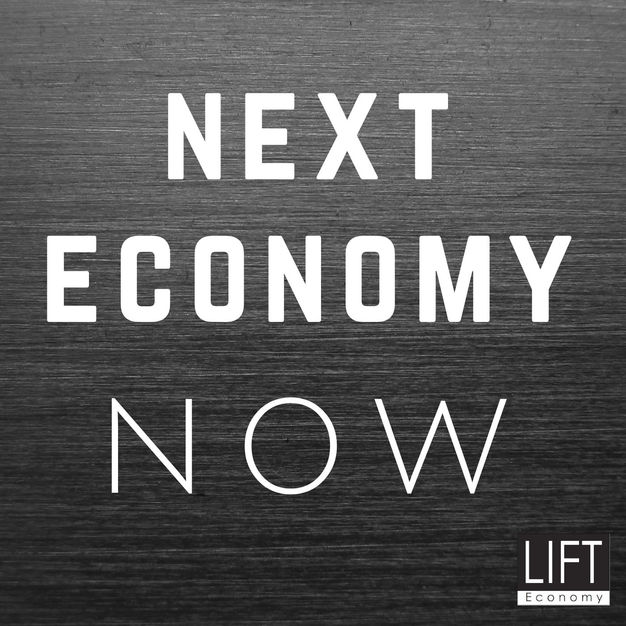 Next Economy Now: Business as a Force for Good
Next Economy Now: Business as a Force for Good
 Upstream
Upstream
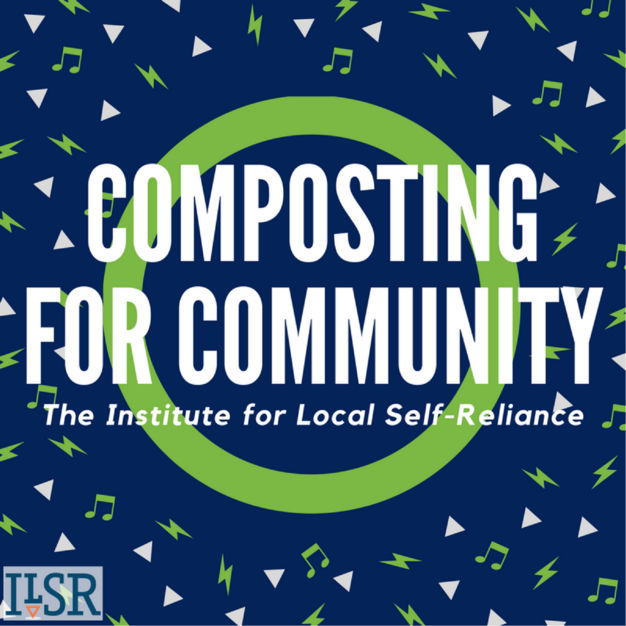 Composting For Community
Composting For Community
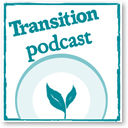 Rob Hopkins
Rob Hopkins
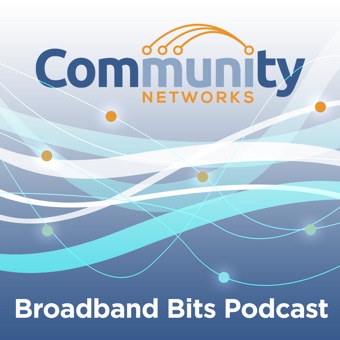 Community Broadband Bits
Community Broadband Bits